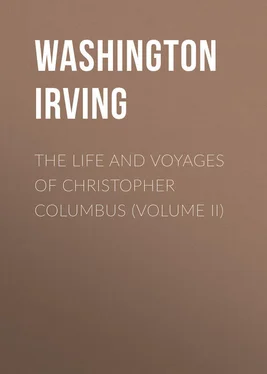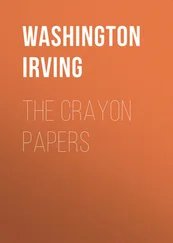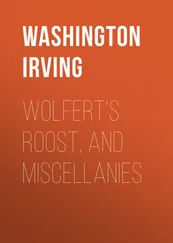Washington Irving - The Life and Voyages of Christopher Columbus (Volume II)
Здесь есть возможность читать онлайн «Washington Irving - The Life and Voyages of Christopher Columbus (Volume II)» — ознакомительный отрывок электронной книги совершенно бесплатно, а после прочтения отрывка купить полную версию. В некоторых случаях можно слушать аудио, скачать через торрент в формате fb2 и присутствует краткое содержание. Жанр: foreign_antique, foreign_prose, на английском языке. Описание произведения, (предисловие) а так же отзывы посетителей доступны на портале библиотеки ЛибКат.
- Название:The Life and Voyages of Christopher Columbus (Volume II)
- Автор:
- Жанр:
- Год:неизвестен
- ISBN:нет данных
- Рейтинг книги:5 / 5. Голосов: 1
-
Избранное:Добавить в избранное
- Отзывы:
-
Ваша оценка:
- 100
- 1
- 2
- 3
- 4
- 5
The Life and Voyages of Christopher Columbus (Volume II): краткое содержание, описание и аннотация
Предлагаем к чтению аннотацию, описание, краткое содержание или предисловие (зависит от того, что написал сам автор книги «The Life and Voyages of Christopher Columbus (Volume II)»). Если вы не нашли необходимую информацию о книге — напишите в комментариях, мы постараемся отыскать её.
The Life and Voyages of Christopher Columbus (Volume II) — читать онлайн ознакомительный отрывок
Ниже представлен текст книги, разбитый по страницам. Система сохранения места последней прочитанной страницы, позволяет с удобством читать онлайн бесплатно книгу «The Life and Voyages of Christopher Columbus (Volume II)», без необходимости каждый раз заново искать на чём Вы остановились. Поставьте закладку, и сможете в любой момент перейти на страницу, на которой закончили чтение.
Интервал:
Закладка:
Another expedition of two vessels sailed from Cadiz, in October, 1500, under the command of Rodrigo Bastides of Seville. He explored the coast of Terra Firma, passing Cape de la Vela, the western limits of the previous discoveries on the main-land, continuing on to a port since called The Retreat, where afterwards was founded the seaport of Nombre de Dios. His vessels being nearly destroyed by the teredo, or worm which abounds in those seas, he had great difficulty in reaching Xaragua in Hispaniola, where he lost his two caravels, and proceeded with his crew by land to San Domingo. Here he was seized and imprisoned by Bobadilla, under pretext that he had treated for gold with the natives of Xaragua. 97 97 Las Casas, Hist. Ind., lib. ii. cap. 2 Muñoz, part unpublished.
Such was the swarm of Spanish expeditions immediately resulting from the enterprises of Columbus; but others were also undertaken by foreign nations. In the year 1497, Sebastian Cabot, son of a Venetian merchant resident in Bristol, sailing in the service of Henry VII of England, navigated to the northern seas of the New World. Adopting the idea of Columbus, he sailed in quest of the shores of Cathay, and hoped to find a northwest passage to India. In this voyage he discovered Newfoundland, coasted Labrador to the fifty-sixth degree of north latitude, and then returning, ran down southwest to the Floridas, when, his provisions beginning to fail, he returned to England. 98 98 Hakluyt's Collection of Voyages, vol. iii. p. 7. Vol. II. -9
But vague and scanty accounts of this voyage exist, which was important as including the first discovery of the northern continent of the New World.
The discoveries of rival nations, however, which most excited the attention and jealousy of the Spanish crown, were those of the Portuguese. Vasco de Gama, a man of rank and consummate talent and intrepidity, had, at length, accomplished the great design of the late Prince Henry of Portugal, and by doubling the Cape of Good Hope, in the year 1497, had opened the long-sought-for route to India.
Immediately after Gama's return, a fleet of thirteen sail was fitted out to visit the magnificent countries of which he brought accounts. This expedition sailed on the 9th of March, 1500, for Calicut, under the command of Pedro Alvarez de Cabral. Having passed the Cape de Verde Islands, he sought to avoid the calms prevalent on the coast of Guinea, by stretching far to the west. Suddenly, on the 25th of April, he came in sight of land unknown to any one in his squadron; for, as yet, they had not heard of the discoveries of Pinzon and Lepe. He at first supposed it to be some great island; but after coasting it for some time, he became persuaded that it must be part of a continent. Having ranged along it somewhat beyond the fifteenth degree of southern latitude, he landed at a harbor which he called Porto Securo, and taking possession of the country for the crown of Portugal, dispatched a ship to Lisbon with the important tidings. 99 99 Lafiteau, Conquetes des Portugais, lib. ii.
In this way did the Brazils come into the possession of Portugal, being to the eastward of the conventional line settled with Spain as the boundaries of their respective territories. Dr. Robertson, in recording this voyage of Cabral, concludes with one of his just and elegant remarks.
"Columbus's discovery of the New World was," he observes, "the effort of an active genius, guided by experience, and acting upon a regular plan, executed with no less courage than perseverance. But from this adventure of the Portuguese, it appears that chance might have accomplished that great design, which it is now the pride of human reason to have formed and perfected. If the sagacity of Columbus had not conducted mankind to America, Cabral, by a fortunate accident, might have led them, a few years later, to the knowledge of that extensive continent." 100 100 Robertson, Hist. America, book ii.
Chapter III
The numerous discoveries briefly noticed in the preceding chapter had produced a powerful effect upon the mind of Ferdinand. His ambition, his avarice, and his jealousy were equally inflamed. He beheld boundless regions, teeming with all kinds of riches, daily opening before the enterprises of his subjects; but he beheld at the same time other nations launching forth into competition, emulous for a share of the golden world which he was eager to monopolize. The expeditions of the English, and the accidental discovery of the Brazils by the Portuguese, caused him much uneasiness. To secure his possession of the continent, he determined to establish local governments or commands, in the most important places, all to be subject to a general government, established at San Domingo, which was to be the metropolis.
With these considerations, the government, heretofore granted to Columbus, had risen vastly in importance; and while the restitution of it was the more desirable in his eyes, it became more and more a matter of repugnance to the selfish and jealous monarch. He had long repented having vested such great powers and prerogatives in any subject, particularly in a foreigner. At the time of granting them, he had no anticipation of such boundless countries to be placed under his command. He appeared almost to consider himself outwitted by Columbus in the arrangement; and every succeeding discovery, instead of increasing his grateful sense of the obligation, only made him repine the more at the growing magnitude of the reward. At length, however, the affair of Bobadilla had effected a temporary exclusion of Columbus from his – high office, and that without any odium to the crown, and the wary monarch, secretly determined that the door thus closed between him and his dignities should never again be opened.
Perhaps Ferdinand may really have entertained doubts as to the innocence of Columbus, with respect to the various charges made against him. He may have doubted also the sincerity of his loyalty, being a stranger, when he should find himself strong in his command, at a great distance from the parent country, with immense and opulent regions under his control. Columbus, himself, in his letters, alludes to reports circulated by his enemies, that he intended either to set up an independent sovereignty, or to deliver his discoveries into the hands of other potentates; and he appears to fear that these slanders might have made some impression on the mind of Ferdinand. But there was one other consideration which had no less force with the monarch in withholding this great act of justice – Columbus was no longer indispensable to him. He had made his great discovery; he had struck out the route to the New World, and now any one could follow it. A number of able navigators had sprung up under his auspices, and acquired experience in his voyages. They were daily besieging the throne with offers to fit out expeditions at their own cost, and to yield a share of the profits to the crown. Why should he, therefore, confer princely dignities and prerogatives for that which men were daily offering to perform gratuitously?
Such, from his after conduct, appears to have been the jealous and selfish policy which actuated Ferdinand in forbearing to reinstate Columbus in those dignities and privileges so solemnly granted to him by treaty, and which it was acknowledged he had never forfeited by misconduct.
This deprivation, however, was declared to be but temporary; and plausible reasons were given for the delay in his reappointment. It was observed that the elements of those violent factions, recently in arms against him, yet existed in the island; his immediate return might produce fresh exasperation; his personal safety might be endangered, and the island again thrown into confusion. Though Bobadilla, therefore, was to be immediately dismissed from command, it was deemed advisable to send out some officer of talent and discretion to supersede him, who might dispassionately investigate the recent disorders, remedy the abuses which had arisen, and expel all dissolute and factious persons from the colony. He should hold the government for two years, by which time it was trusted that all angry passions would be allayed, and turbulent individuals removed: Columbus might then resume the command with comfort to himself and advantage to the crown. With these reasons, and the promise which accompanied them, Columbus was obliged to content himself. There can be no doubt that they were sincere on the part of Isabella, and that it was her intention to reinstate him in the full enjoyment of his rights and dignities, after his apparently necessary suspension. Ferdinand, however, by his subsequent conduct, has forfeited all claim to any favorable opinion of the kind.
Читать дальшеИнтервал:
Закладка:
Похожие книги на «The Life and Voyages of Christopher Columbus (Volume II)»
Представляем Вашему вниманию похожие книги на «The Life and Voyages of Christopher Columbus (Volume II)» списком для выбора. Мы отобрали схожую по названию и смыслу литературу в надежде предоставить читателям больше вариантов отыскать новые, интересные, ещё непрочитанные произведения.
Обсуждение, отзывы о книге «The Life and Voyages of Christopher Columbus (Volume II)» и просто собственные мнения читателей. Оставьте ваши комментарии, напишите, что Вы думаете о произведении, его смысле или главных героях. Укажите что конкретно понравилось, а что нет, и почему Вы так считаете.












